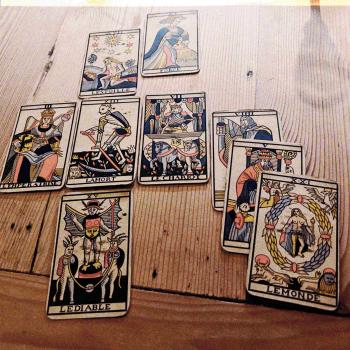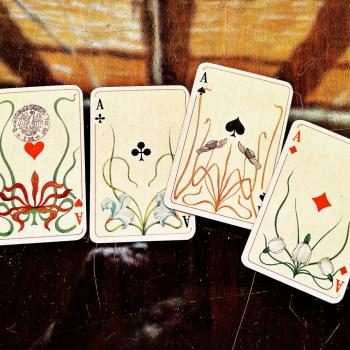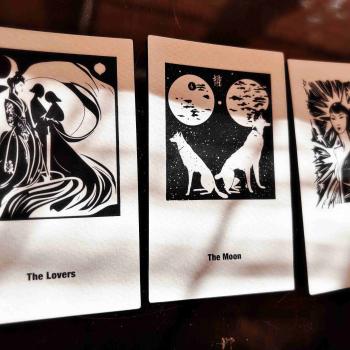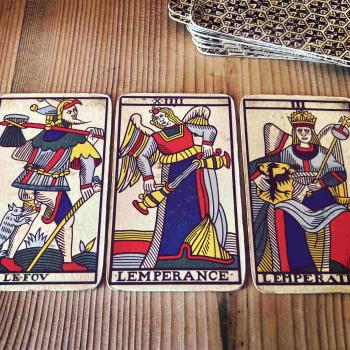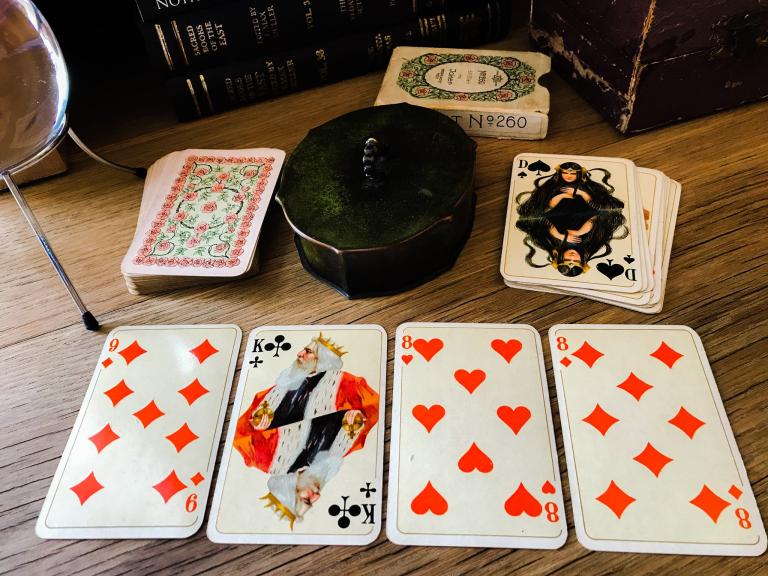
In my cartomancy classes I often make this point:
You can cultivate a sense of progression, from brainstorming on a 3-card set to hitting a nuanced tone in reading larger sets, simply by training asking questions that maintain a balanced focus between ordinary concerns and extraordinary interests.
That is to say, the extraordinary questions have a much higher propensity for storytelling, than the mundane questions.
All questions are good and have great value, but if you never make the effort to ask difficult, inspiring, invigorating, piquant, or downright quirky questions will soon find that your divination stales, that your cards don’t ‘talk’ to you anymore.
Likewise, if you only ask deeply involved questions, you will find that your divination will come across as convoluted and completely attached to your verbosity.
Cartomancy is all about the ability to create a coherent story that relates to a specific situation. It is also about your ability to move easily between the sacred and the profane, the mundane and the special, the snapshot (often the domain of the 3-card layout) and the dynamic crossing of relations (often the domain of a 9-card layout).
Why do you need a coherent story?
Because divination is not about life set in stone, but rather, about the possibility of discovery.
The more you train your ability to move from tired questions to the more galvanizing questions the more skilful you get in using tone, nuance, rhythm, color in your snappy deliveries of a message that will not only make sense in a precise way, but also give the other you read the cards for something to think about.
Here is a short list of examples of questions that fall into 4 categories of mainstream concerns.
We find these concerns already stylized to the 4 suits of a deck of cards, so the idea is to think of what crosses you over, from the ordinary and commonplace to the extraordinary and thrilling. And vice versa.
LOVE
The ordinary questions:
- Does he love me?
- What can I do to make myself more appreciated?
- How can I love in a disinterested way?
The extraordinary questions:
- Is love sacred or profane? You will find opinions equally divided, with some claiming the first, and others claiming the latter. When you ask an either/or question, you can do a 3-card sided by side for each of the situations. Compare the two scenarios.
- In what can I find the highest manifestation of love?
- To what extent is love subject to what I’m capable of?
WORK
The ordinary questions:
- What does it take for me to score this job?
- How can I improve my skills?
- I’m a jack of all trades and lack focus. What am I best at, so I can cultivate it?
The extraordinary questions:
- Why mandates me to desire recognition for my work?
- If I work through my illusions, how can work itself take the place of my illusions? What would this work consist of?
- ‘Chop wood and carry water’. That’s work. ‘Integrate your shadow’. That’s work. ‘Make a pact with the Devil, so he can work for you (haha, but let’s pretend this is so). That’s work. What is the reality of work? Which of the three scenarios here is ‘true’? For fun, you can use 3 sets of 3 cards for each, and then compare. Use the same cut, without shuffling for each.
- What is the one aspect of my work that can be used as a spell to enchant my boss with, by simply referring to it through the mundane channels of manifestation? Ex. ‘Boss, my work cuts through shit like a Samurai’s sword (You, thinking ‘Ace of Spades’, the boss hearing: ‘Samurai sword’).
HEALTH
The ordinary questions:
- How will these antidepressants improve my life?
- What is the cause of my fatigue?
- What type of fitness is appropriate for my body? (Think the 4 suits: Ex. hearts, swimming; clubs, yoga; diamonds, golf; spades, fencing).
The extraordinary questions:
- Mens sana in corpore sano, they say, and they are right. A healthy mind in a healthy body. What is the nature of what preoccupies my mind?
- What is pain? Why can’t people feel the pain of others it, no matter how advanced they are on the scale of true compassion?
- As there’s no reality outside of my perception, what strategy can I employ to change the narrative around the demons of fear and desire grasping at my body (the mind is part of the body)? Ex: I fear I’m going to die from this disease à change of metaphor: This disease has no substance, hence, I can vanquish it by dissolving the conceptual framework around it; I desire this wine more than anything else in the world à change of metaphor: This wine before two glasses tells the truth, at three glasses it talks bullshit).
MONEY
The ordinary questions:
- How can I pay off my loans in the fastest way possible?
- Which portfolio can I invest in? (A 3-card side by side describing each is a good idea, as you can compare them and pick the one that’s best).
- How can I negotiate a better pay for my work?
The extraordinary questions:
- Money is a highly symbolic, virtual thing. How can I apply this truth to the way in which I think of money as a material thing, thus being at odds with what money really is, always fucking with my expectations, and therefore always disappointing?
- Everything passes. This truth applies to money. How can I simply let go of my being invested in accumulating?
- How can I experience ‘cash flow’ as flow, rather than a fixation with the idea of ‘I must have it, now?’
Let’s end here with justifying the feature image below.
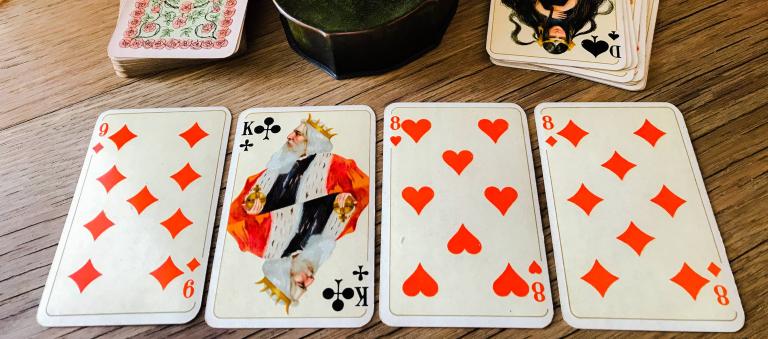
Why does the mind cling to appearances?
Because it is emotionally invested in changing outlook and tune. That, and then the fact that we like the idea of royally controlling it.
♠
Stay in the loop for cartomantic courses and activities.



